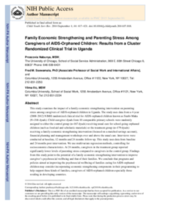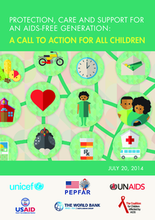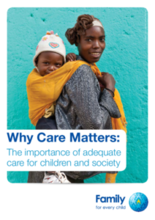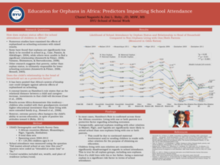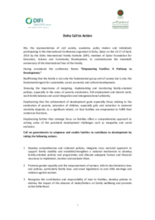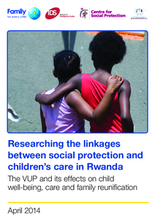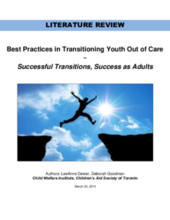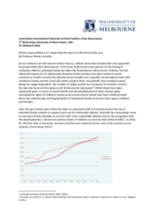Displaying 131 - 140 of 271
This study examines the impact of a family economic strengthening intervention on parenting stress among caregivers of AIDS-orphaned children in Uganda.
This call to action is for all who are committed to achieving an AIDS-free generation.
This report highlights the needs of children without adequate family care, the impact inadequate care on children and society, and why family care is important. In this report, Family for Every Child also issues several recommendations for those in all sectors of society and an example of care reform from Brazil.
This powerful chart illustrates preliminary research findings using data from Demographic and Health Surveys (DHS) in 5 African countries (Malawi, Mozambique, Niger, Uganda and Zimbabwe) to better understand how orphan status affects the school attendance of children in Africa and the extent to which living in kinship care can act as a protective factor in this context.
This is a Call to Action issued by the Doha International Family Institute commemorating the International Year of the Family.
For this study conducted in and near Kampala, Uganda, 518 youth (8 to 18 years old) and their caregivers were interviewed individually, examining the association between relatedness and perceived food and work equity, and school attendance.
This issue of the US-based journal Future of Children, entitled ‘Helping Parents, Helping Children: Two-Generation Mechanisms,’ reviews intervention programs for children and families of low socioeconomic status and on the mechanisms of child development that those intervention programs are trying to influence.
This report features the results of, and recommendations based on, a study conducted in Rwanda which investigates the links between the cash transfer program “Vision 2020 Umurenge Programme (VUP),” child well-being, and children’s care and family reunification.
This literature review examines literature on the best practices for youth aging out of care that indicate successful outcomes for them as adults.
In this presentation Professor Connolly reviews recent trends in the use of kinship care in Australia and discusses what this shift means in the context of the ‘residual’ model of child protection used in the country.

